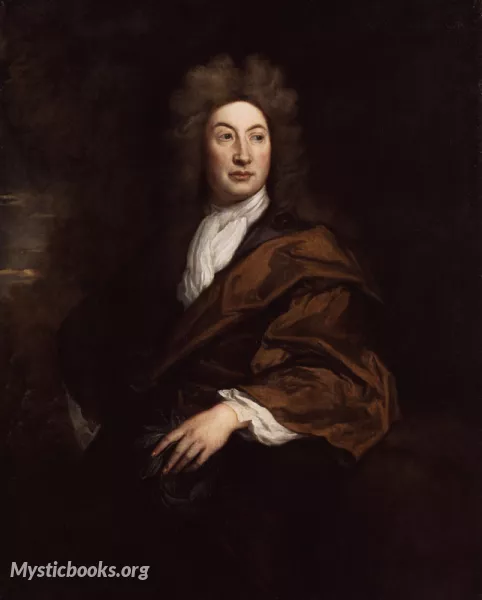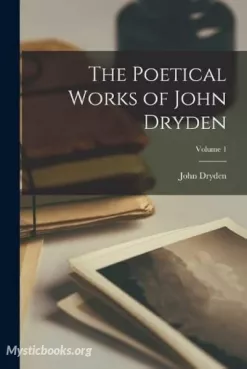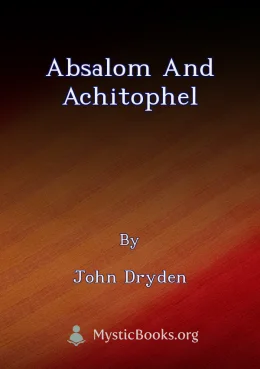
Timeline
Title
Country/Nationality
John Dryden
John Dryden was a towering figure in English literature, a master of diverse genres and a seminal influence on the development of English poetry and prose. His brilliance lay in his ability to adapt to changing literary trends and to infuse his works with a unique blend of wit, elegance, and intellectual rigor. Dryden's contributions to literature span poetry, drama, literary criticism, and translation, earning him the esteemed title of England's first Poet Laureate in 1668.
Early Life and Education
Born on August 9, 1631, in Aldwincle, Northamptonshire, England, John Dryden came from a Puritan family with a long history of religious dissent. He attended Westminster School and Trinity College, Cambridge, where he immersed himself in classical literature and developed a keen interest in contemporary literary debates.
Poetic Prowess
Dryden's foray into poetry marked a turning point in English literary history. His early poems, such as "Heroique Stanzae" (1659) and "Annus Mirabilis" (1666), showcased his mastery of heroic couplets and his ability to blend classical elements with contemporary themes. His later poems, such as "Absalom and Achitophel" (1681) and "Mac Flecknoe" (1682), exhibited his political satire and mastery of satire.
Dramatic Achievements
Dryden's contributions to drama were equally significant. He experimented with various dramatic forms, including heroic drama, tragicomedy, and opera, and infused his plays with wit, political commentary, and social satire. His notable plays include "The Rival Ladies" (1664), "The Indian Emperor" (1665), and "All for Love" (1678).
Literary Criticism and Translation
Dryden's critical writings were as influential as his poetry and plays. His essays, such as "Of Dramatick Poesie" (1668) and "The Preface to Fables Ancient and Modern" (1700), explored the nature of poetry, drama, and translation. He championed the use of the heroic couplet and advocated for a balance between classical and English traditions.
Dryden's translations were equally notable. His translation of Virgil's "The Aeneid" (1697) is considered a masterpiece, and his translations of Ovid, Horace, and other classical authors helped to introduce English readers to the riches of Latin literature.
Philosophical Musings
Dryden's philosophical leanings were complex and evolved over time. He was initially drawn to Puritanism but later embraced skepticism and rationalism. His works often explored themes of religious faith, political power, and the nature of human relationships.
Legacy
John Dryden's impact on English literature is undeniable. He was a master of diverse genres, a brilliant critic, and a skilled translator. His works continue to be studied and admired for their wit, elegance, and intellectual rigor. He is remembered as a literary luminary who shaped the course of English poetry and prose.
Interesting Facts about John Dryden
- Dryden was not only a poet, playwright, and critic but also a prolific essayist and journalist.
- Dryden was a controversial figure, often embroiled in political and literary feuds.
- Dryden played a significant role in the development of English prose style, introducing a more fluid and conversational tone.
- Dryden's tomb bears the inscription "John Dryden: A Writer of Immortal Verse."
Conclusion
John Dryden's legacy as a literary giant is firmly established. His mastery of diverse genres, his keen critical insights, and his enduring influence on the development of English literature make him a towering figure in the history of English letters.
Books by John Dryden

The Poetical Works of John Dryden, Volume 1
Embark on a captivating literary journey through the enchanting verses of John Dryden, the acclaimed English poet and playwright, in this comprehensive collection of his works. This meticulously curated volume, spanning the breadth of Dryden's poeti...

Absalom and Achitophel
John Dryden's *Absalom and Achitophel* is a political satire in verse form, published in 1681. The poem utilizes the biblical narrative of King David and his rebellious son Absalom to satirize the political climate of Charles II's England. Dryden dr...

Tempest
This adaptation of Shakespeare's *The Tempest* by John Dryden and William Davenant retains the core plot and characters, but expands upon them. Prospero, a wronged Duke, seeks revenge on his brother Antonio, who seized his throne. His faithful servan...

All for Love; or, The World Well Lost
John Dryden's 'All for Love' is a tragic play in blank verse that reimagines the passionate relationship between Roman general Mark Antony and the Egyptian queen Cleopatra. Unlike Shakespeare's treatment of the same story, Dryden focuses on the lover...

King Arthur
John Dryden's 'King Arthur, or The British Worthy' is a semi-opera that reimagines the Arthurian legend with a blend of history, fantasy, and romance. Set against the backdrop of a Saxon invasion, the play portrays King Arthur's struggle to defend Br...